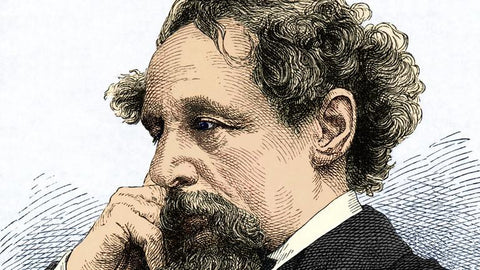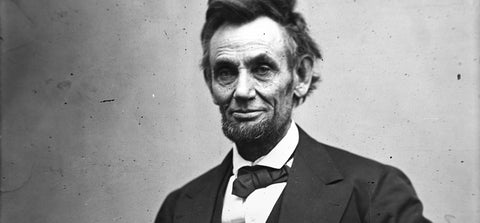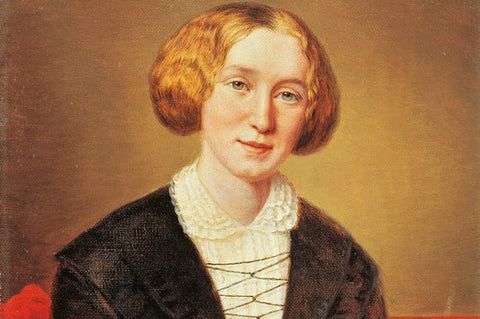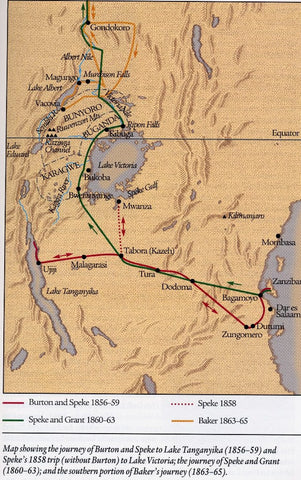In the beginning. 1860 a year in brief.

Pearson shop shown on the right hand side of the picture with Tom standing in his leather smithing apron.
If hindsight is a wonderful thing, the opposite, foresight, is equally rewarding. At Pearson 1860, we’ve come to rely on both. Hindsight tells us what we’ve done well (and could do better), just as it was foresight, 161 years ago, that got us here in the first place. That’s the year, 1860, that our founder Tom Pearson opened his first bike store. The first of its kind anywhere in the world. So, even if you know nothing about the Tour de France, or sprocket sizes or rear derailleurs, it’s hard not to see it as a milestone.


In the beginning - the jersey label adorning our merino cycling jersey.
Back in 1860, Sutton was a county town, in Surrey. Today, it’s a Greater London borough. In London proper, that year, Charles Dickens published the first instalment of Great Expectations. Not all at once, of course. An early adopter of the cliff-hanger, Dickens was savvy enough to serialise his work, in a periodical called All the Year Round, with the first episode appearing in October. A literary superstar on both sides of the Atlantic, Dickens could afford to keep his public waiting. Great Expectations was, give or take a novella or two, his 18th major work.

“Ask no questions and you'll be told no lies” Great Expectations - C. Dickens.
On the other side of the Pond, in Washington DC a month later, the Republican congressman for the state of Illinois was elected 19th President of the United States. His name was Abraham Lincoln, the man who would abolish slavery and save the Union, even though the cost, the American Civil War, would be great.

"Whatever you are, be a good one.” - A. Lincoln.
Elsewhere, in China, another conflict was coming to an end. The Second Opium War had been rumbling since 1856, pitting the dynastic Qing empire against the Imperial interests of Britain and France. The conflict, surrounding the importation of opium to the Chinese mainland, brought defeat for the Qing and resulted in the handover of the Kowloon Peninsula, what later became British Hong Kong. It also added a new expression to the English language: ‘Chasing the dragon.’
Back in Britain, other literary careers were developing, if not all on the same stellar trajectory as that of Mr Dickens. In the Warwickshire town of Nuneaton, the author Mary Ann Evans released the first volume of Mill on the Floss, the tragic story about the love-stricken, and ultimately doomed, Maggie Tulliver. In a man’s world, Evans hedged her bets, only too aware that male authors sold far more than their female counterparts. So, when she chose a nom de plume, she indulged in some gender-bending. ‘George Eliot’ had published another novel, Adam Bede, the previous year, in 1859, and would release a third, Silas Marner, in 1861. All three books would go on to be classics.

Mary Ann Evans - nom de plume - George Eliot.
Other men of the time were busy doing what men did — conquering far-off lands and people, whether they liked it or not. And discovering stuff. In October 1860, the explorers John Hanning Speke and James Augustus Grant set out from Zanzibar, in east Africa, to trace the source of the true Nile. It was Speke’s second foray in the region, during which he hoped to confirm the discovery he had made two years previously, on an expedition with Richard Burton. In 1858, Speke had wandered off and, independently, been the first European to reach Lake Victoria, eventually accepted as the great river’s source. Burton never forgave his fellow explorer, devoting the rest of his own career to rubbishing, to good effect as it turned out, Speke’s reputation.

So, as Tom Pearson opened the doors to the world’s first bicycle store, and with hindsight as yet unavailable, he might have been forgiven for thinking his contribution to world history that year was a modest one.

He wasn’t destined to become a literary titan, nor an iconic leader of the free world, or even a petulant, pith-helmeted explorer. There are, nonetheless, cyclists around the world whom every day, whether they need a new inner tube or chain link, would not begrudge old Tom a nod of recognition.
Buy In The Beginning Heritage Merino Jersey
View Minegoestoeleven
Read How To Choose The Right Road Bike
